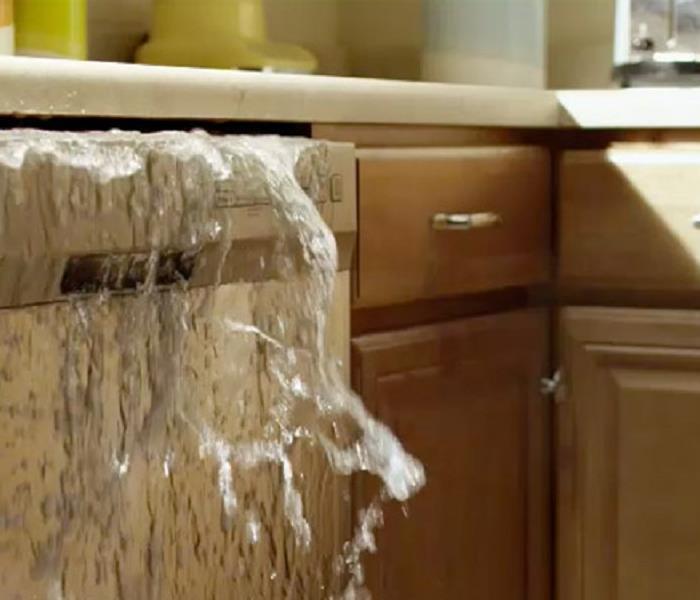How to Prevent Kitchen Water Damage
5/23/2016 (Permalink)
The kitchen is often an ignored part of the house when it comes to preventing water damage. Sometimes the smells and moisture and lack of regular attention can mask some of the signs that something isn’t right. Here are some of the top tips on how you can prevent water damage in your kitchen and save yourself money.
What Causes Kitchen Water Damage?
When it comes to kitchen water damage, you have three main sources, which are the refrigerator, the sink and countertop, and the dishwasher. There are actually warning signs that these all could cause water damage, however, so we wanted to make sure you know exactly what they are.
Water Damage: Refrigerators
The odds are that when you clean your kitchen or are doing maintenance, you normally don’t check behind your refrigerator. But if you do inspect that area routinely, you will reduce the chances of water damage problems down the road. If you do find water behind your refrigerator, it is a definite sign that something is wrong. Sometimes you may even find mold growth, which means you need to work with a reputable repair service immediately. If you have an icemaker, make sure that the hose is sealed and still attached to your water supply.
Water Damage: Sinks and Countertops
You use a lot of water on and around your sink and countertops, and sometimes that water can get trapped and cause damage. Check regularly underneath your sink to make sure that you don’t have any leaks. If you have a drip under the sink, that means you may have drain problems. Slow draining pipes may indicate that you have a blocked drain, and a dripping faucet also needs to be repaired promptly. For the countertops, see if you notice cracks or grout that is missing. If you have those issues, you need to fix that to prevent water from pervading. Stained pipes and walls around pipes also indicate an internal leak that needs to be fixed to prevent additional water damage.
Water Damage: Dishwashers
If your dishwasher isn’t quite emptying correctly after you use it, the main filter may be blocked. You have to have it released promptly in order to prevent water damage. Take the time to look at the base of your dishwasher for leaks on a regular basis. If you do see a leak, there could be an unsealed joint or a hose that is damaged. At this point, you will want to check the connection and get it repaired if there is an issue as quick as possible. You should also consider installing steel-braided hoses on appliances like dishwashers, but make sure that you talk with a trusted plumbing source about the best options for your appliances.






 24/7 Emergency Service
24/7 Emergency Service
